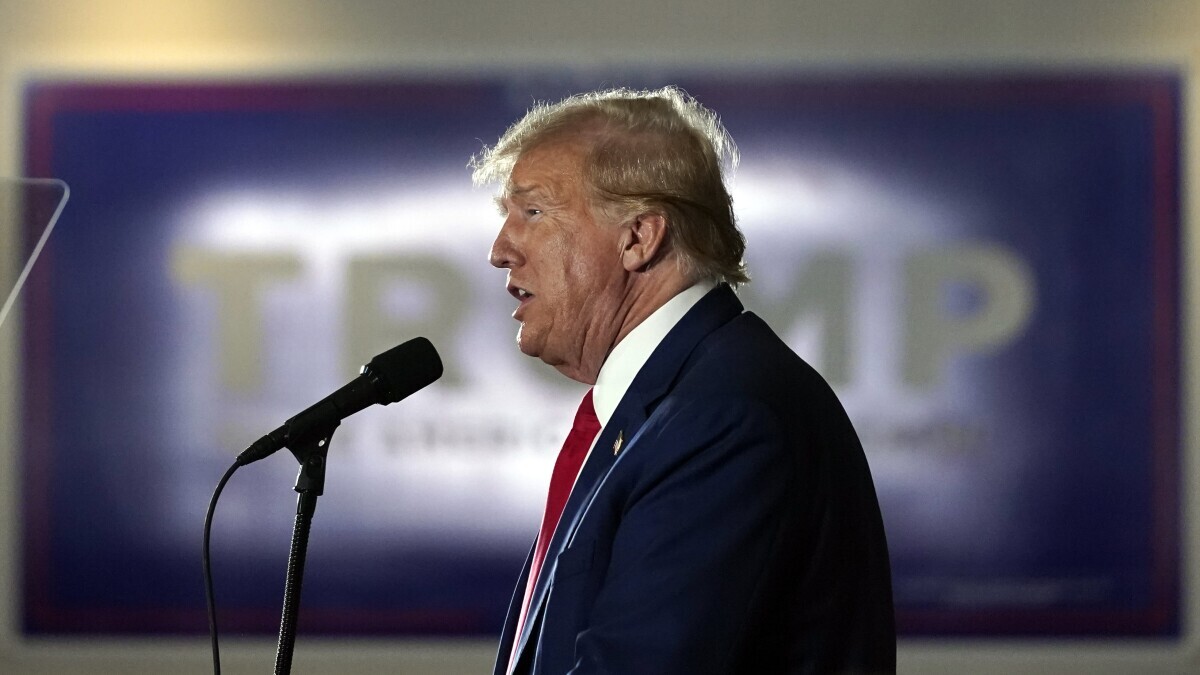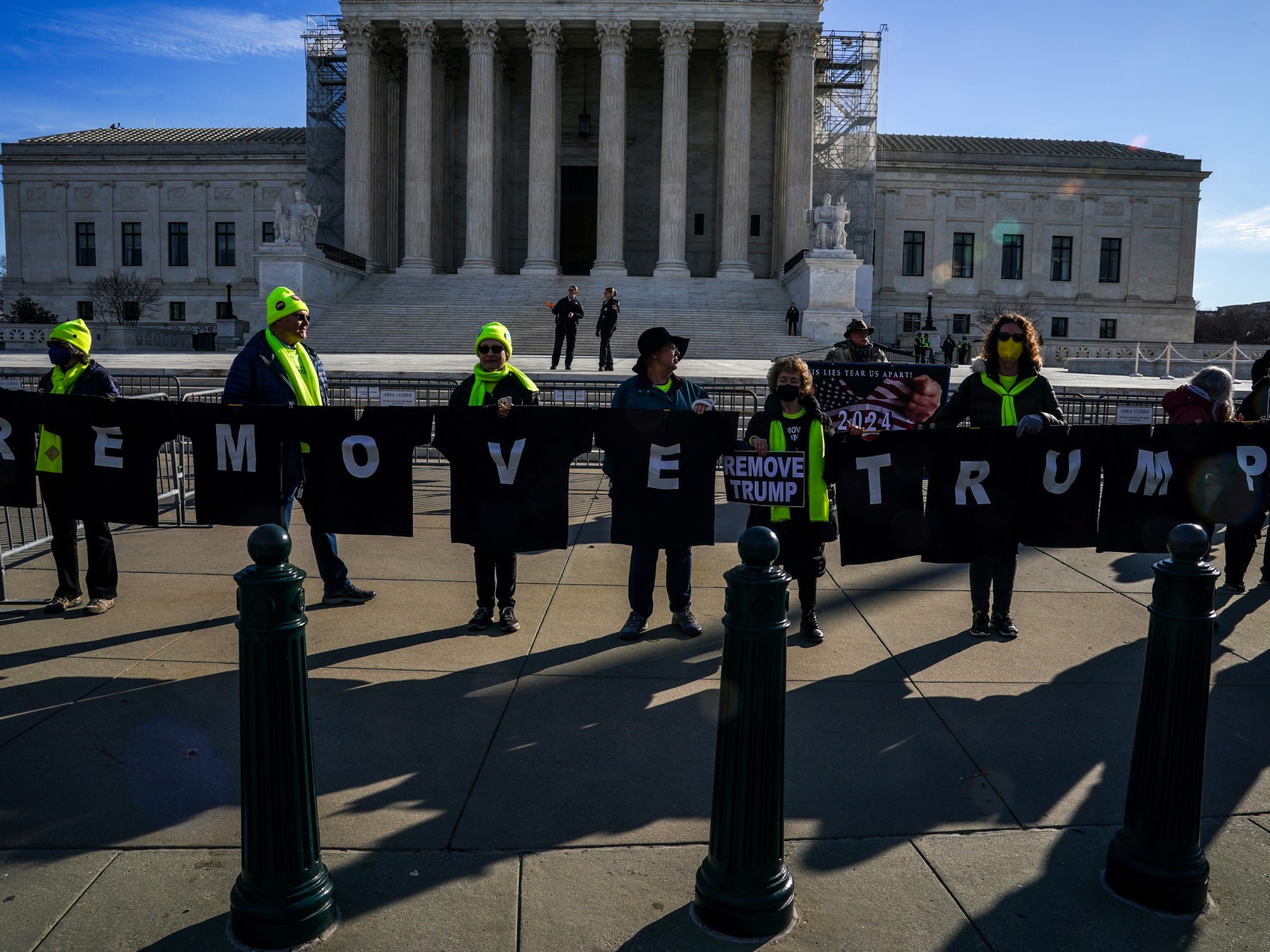The US Supreme Court commenced hearings on Thursday regarding Donald Trump’s eligibility for the presidency, marking a pivotal moment that could either bolster his reelection bid or result in his exclusion from the roster of candidates for the forthcoming November elections.
Initiated by voters opposed to Trump, the case revolves around determining whether a Colorado court appropriately adjudicated Trump’s alleged violation of an article of the 14th Amendment to the US Constitution during the 2020 electoral saga and whether such transgression warrants disqualification from seeking public office.
This legal challenge adds to the array of litigations Trump confronts in the run-up to the elections, including four criminal indictments.

Outlined below are the essential aspects of Thursday’s proceedings:
What is the accusation against Trump?
The crux of the matter lies in Section 3 of the 14th Amendment, which prohibits individuals who have “engaged in insurrection or rebellion” against the state from holding federal office. Trump’s detractors contend that his involvement in the January 6, 2021, assault on Congress renders him unfit for candidacy.
Thus far, two US states, Colorado and Maine, have invoked this clause, declaring Trump ineligible for candidacy within their jurisdictions, despite his prominent position in the Republican presidential race.
Who initiated the case, and how did it reach the Supreme Court?
A coalition of Colorado voters instigated the lawsuit in August 2023. Although a Colorado district court rejected their plea to disqualify Trump from the election, the Colorado Supreme Court, upon appeal, concluded in December that Trump had indeed contravened Section 3 of the Amendment—a groundbreaking verdict. Electoral authorities in Maine echoed a similar ruling.
Subsequently, Trump’s legal team appealed to the US Supreme Court in Washington, DC, following the decision in Colorado. Both the Colorado Supreme Court and the state of Maine have suspended their rulings pending the Supreme Court’s verdict.
The outcome of this case could carry nationwide ramifications; if the Colorado Supreme Court’s decision stands, Trump might be stricken from the ballot in other states as well.
What was Trump’s defense?
In their written submission to the court, Trump’s legal representatives argued that the insurrection clause cannot be invoked in the absence of a specific legislative enactment by Congress.
Citing the historic precedent of the Griffin case, Trump’s team contended that the insurrection prohibition is not “self-executing” and necessitates congressional action for enforcement. Justice Brett Kavanaugh, a conservative, emphasized the significance of this case, highlighting its proximity to the enactment of the Amendment.
Jonathan Mitchell, Trump’s attorney, further asserted during the proceedings that Trump did not orchestrate a deliberate overthrow of the government, characterizing the events of January 6 as a “riot.”
What was the response from Supreme Court justices?
During the hearings, justices from both liberal and conservative camps posed probing questions to the attorneys representing Trump’s adversaries, hinting at a potential inclination towards ruling in Trump’s favor. The discourse veered towards narrower legal provisions, such as the intended scope of the insurrection clause.
Led by Chief Justice John Roberts, the justices questioned whether the insurrection prohibition extends to former presidents and whether its invocation mandates prior legislative action by Congress.
Concerns were raised about the ramifications of courts disqualifying candidates on voters’ rights and the democratic process. Justice Brett Kavanaugh underscored the potential disenfranchisement of voters, while Justice Elena Kagan queried the authority of individual states in determining candidates for national elections.
What lies ahead?
Typically, the Supreme Court takes several months to deliver judgments; however, an expedited decision is anticipated in this case. Experts anticipate a ruling in a matter of weeks, likely before Super Tuesday on March 5, the date of primary elections in most states, including Maine, Colorado, and thirteen others.
Following the hearings, Trump expressed satisfaction with the proceedings but voiced discontent regarding the initiation of the case.
Despite facing legal challenges, Trump remains poised to secure the Republican nomination, leveraging appearances at court proceedings to galvanize his supporters and bolster his campaign momentum ahead of the November 5 election.
